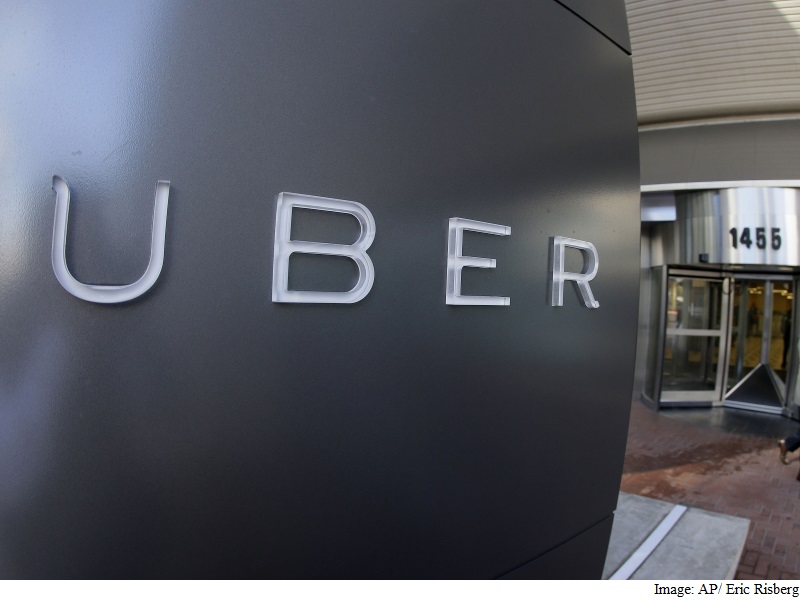US Judge Expands Driver Class-Action Lawsuit Against Uber

Drivers sued Uber in San Francisco federal court, contending they are employees and entitled to reimbursement for expenses, including gas and vehicle maintenance. The drivers currently pay those costs themselves.
The results of Uber's legal battle could reshape the on-demand economy, which is built around Internet companies that serve as marketplaces matching people who provide a service with others looking to pay for it.
Earlier this year, US District Judge Edward Chen said Uber drivers must have opted out of arbitration to be a member of the class. At the time, Uber said Chen's ruling meant only a "tiny fraction" of a potential 160,000 California drivers would be eligible to be class members.
But on Wednesday, Chen found some of Uber's arbitration agreements unenforceable. Chen also ruled that drivers could pursue expense reimbursement claims against the company as a class action.
In a statement, Uber said it would "immediately" appeal Chen's ruling.
Large class actions generally give plaintiffs more leverage to negotiate a settlement. It is unclear how many drivers will ultimately participate in the Uber case.
Shannon Liss-Riordan, an attorney for the plaintiffs, said the ruling meant "a much greater number" of Uber drivers would be allowed to join the lawsuit. Liss-Riordan also said expense reimbursement was the primary damages claim in the case.
Chen also ruled that Uber drivers who work for third-party transportation providers, like limousine companies, could not be part of the case.
The case is Douglas O'Connor et al v. Uber Technologies Inc, US District Court, Northern District of California, No. 13-3826.
© Thomson Reuters 2015
For the latest tech news and reviews, follow Gadgets 360 on X, Facebook, WhatsApp, Threads and Google News. For the latest videos on gadgets and tech, subscribe to our YouTube channel. If you want to know everything about top influencers, follow our in-house Who'sThat360 on Instagram and YouTube.
Related Stories
- Samsung Galaxy Unpacked 2025
- ChatGPT
- Redmi Note 14 Pro+
- iPhone 16
- Apple Vision Pro
- Oneplus 12
- OnePlus Nord CE 3 Lite 5G
- iPhone 13
- Xiaomi 14 Pro
- Oppo Find N3
- Tecno Spark Go (2023)
- Realme V30
- Best Phones Under 25000
- Samsung Galaxy S24 Series
- Cryptocurrency
- iQoo 12
- Samsung Galaxy S24 Ultra
- Giottus
- Samsung Galaxy Z Flip 5
- Apple 'Scary Fast'
- Housefull 5
- GoPro Hero 12 Black Review
- Invincible Season 2
- JioGlass
- HD Ready TV
- Laptop Under 50000
- Smartwatch Under 10000
- Latest Mobile Phones
- Compare Phones
- Redmi Turbo 4
- Vivo Y200+
- Lava Yuva 2 5G
- OnePlus Ace 5
- OnePlus Ace 5 Pro
- Oppo A5 Pro 5G
- Vivo Y29 5G
- Honor Magic 7 RSR Porsche Design
- Asus Zenbook S 14
- MacBook Pro 16-inch (M4 Max, 2024)
- Honor Pad X9 Pro
- Honor Pad V9
- boAt Enigma Gem
- boAt Enigma Daze
- Sony 65 Inches Ultra HD (4K) LED Smart TV (KD-65X74L)
- TCL 55 Inches Ultra HD (4K) LED Smart TV (55C61B)
- Sony PlayStation 5 Pro
- Sony PlayStation 5 Slim Digital Edition
- Blue Star 1.5 Ton 3 Star Inverter Split AC (IC318DNUHC)
- Blue Star 1.5 Ton 3 Star Inverter Split AC (IA318VKU)

















